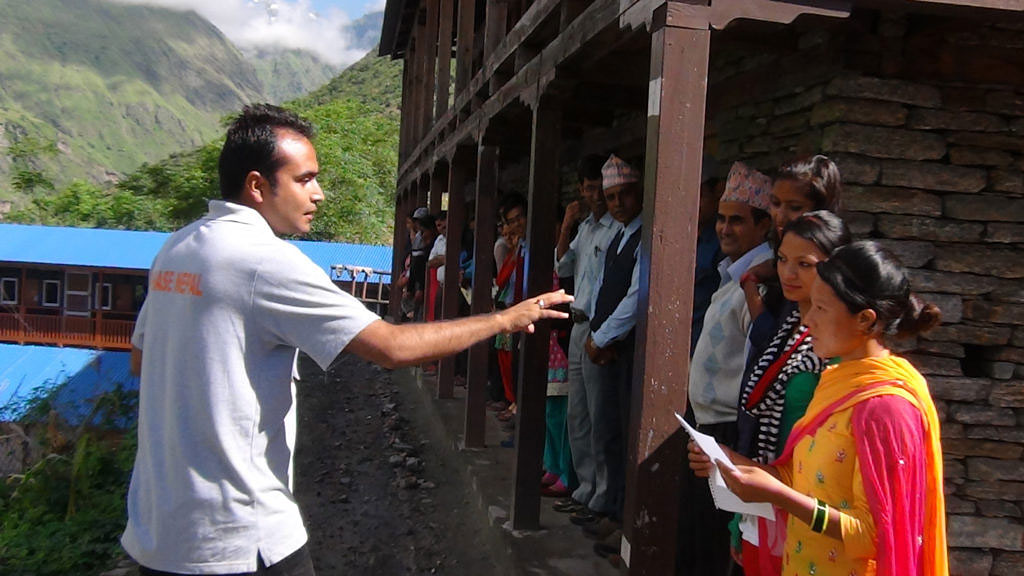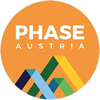In cooperation with PHASE Nepal, PHASE Austria implemented a two-year focus programme in teacher training. Bajura is one of the most remote districts of Nepal in the West of the country; the district’s most remarkable features are its very poor road access as well as a lack of other infrastructure.
Projekt communities:
Kolti, Kotila, Wai, Bandhu, Pandusain, Rugin, Bajura District, Karnali Region
350 teachers will participate in teacher training, which, contrary to the current emphasis on rote learning, will create vivid learning environments which encourage students to creative, entrepreneurial, and critical thinking, enabling them to face the challenges and opportunities of a changing world. In addition, 105 teachers will be chosen for a further training as mentor teachers, who will maintain a continueing supervision and support of the schools in the project region. The trainers will visit the participating teachers to observe them in the classroom, and thus make sure the new methods are actually implemented in class.
The project had the following goals:
- Improve the quality of teaching through teacher training
- Increase teachers’ motivation through supervision and mentoring
- Sustainably transform teaching methods towards a child-friendly learning environment
- Improve the situation particularly of girls by raising awareness of specific challenges and problems as well as by strenghening the role of female teachers
- Encourage students – and also teachers – to independent, critical and solution-oriented thinking

For this project, PHASE Nepal can rely on the ample experience of its staff from NTTI – Nepal Teacher Training Innovations: From 2010–2014, 1,300 teachers were trained to implement a child-friendly learning environment. The training model is based on a continuing support for the teachres, guaranteeing that changes from the training are sustained, and generations of students will have a positive learning experience. In the long term, we aim for the transformation of the whole school system. An additional impact of these programmes is an increased motivation of the teachers by the training itself as well as by supervision in classroom observation.
This programme will improve access to education and thus life chances of children in the project area.
The situation in Bajura
Bajura ranks last in Nepal in the Human Development Index. There are 135,524 people living in the district and the literacy rate in the district is 31.3% (males: 45.2%, females 16.7%), according to the Nepal Ministry of Cooperatives and Poverty Alleviation. There are 16 higher secondary schools in the district. The number of teachers varies slightly due to absenteeism and vacancies.
Bajura is a very remote district with poor transport links, which create additional challenges. For example, the allocation of textbooks is poor. The functioning of schools in the district was severely limited during the civil war, with many schools being closed altogether.
Since 2008, PHASE has been operating health posts in the region, which, in addition to providing basic medical care, also contribute to educating the population. Committed staff ensure good contact with local decision-makers and multipliers. Through their work in health care, they already have contacts with the district authorities, which are essential for the successful implementation of the project.
Since 2014, PHASE worldwide has also been running a project in the region with a focus on securing livelihoods, funded by the UK’s Department for International Development (DFID).
Due to poor transport links, the project in the district is initially planned only in some VDCs that are relatively easy for PHASE Nepal to reach, with an expansion to some VDCs in the neighbouring Humla district, where PHASE Nepal also runs projects. The situation in Humla district is very similar to that of Bajura district.
We would like to thank the City of Vienna for its support of this project.
![]()
In January 2016, the City of Vienna consented to a cost-neutral extension of the project half a year, as there were initial recruitment problems, and later, in the wake of the earthquakes, the newly employed project coordinator Dilip Acharya was deployed in disaster relief for some months.
The project was concluded as planned in April 2017. 361 teachers were trained, 78 mentor teachers are still active at the 43 participating schools to make sure that the changes are maintained in a sustainable manner. Further details, including budget information, are available in the detailed project report (in German) and audit.


